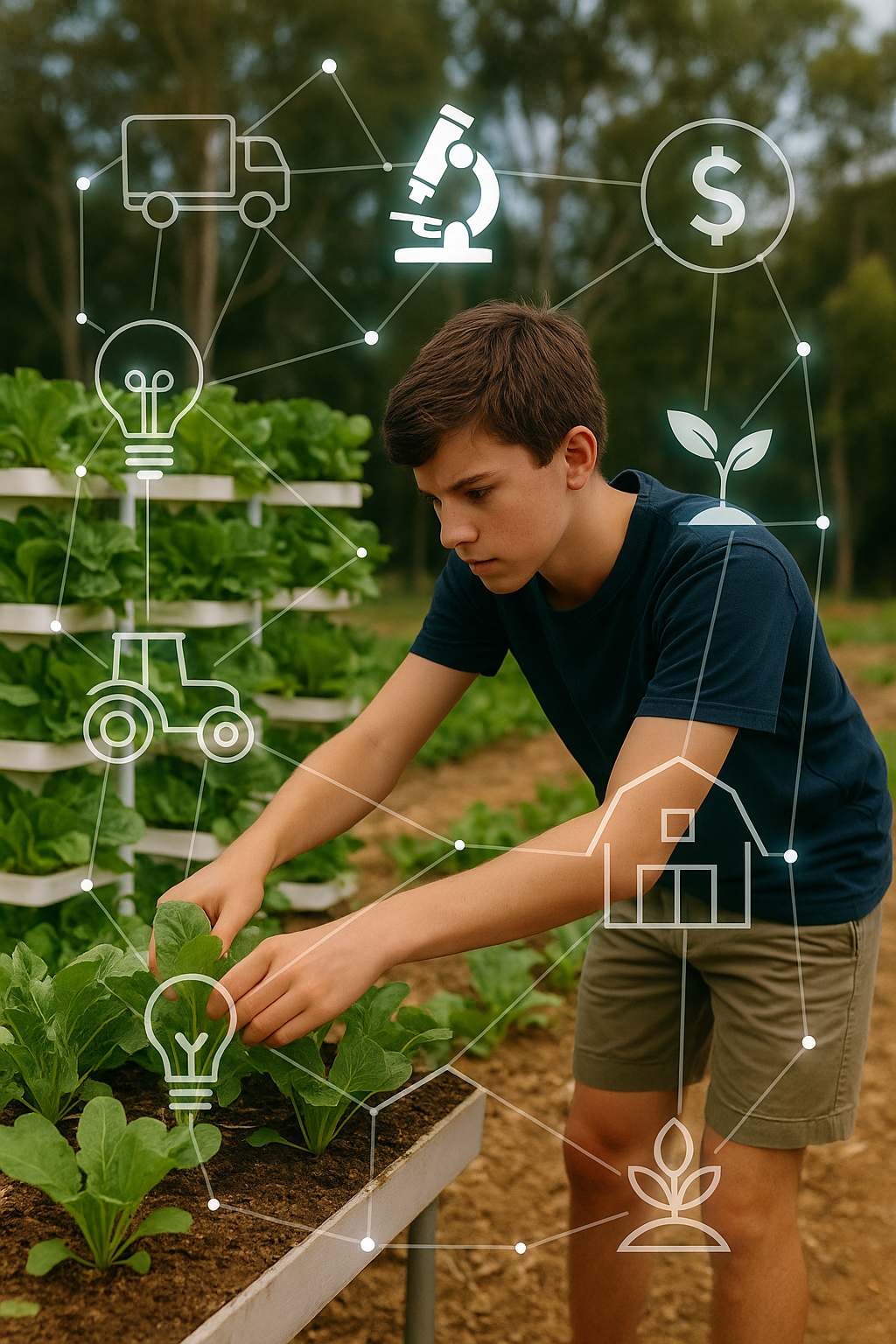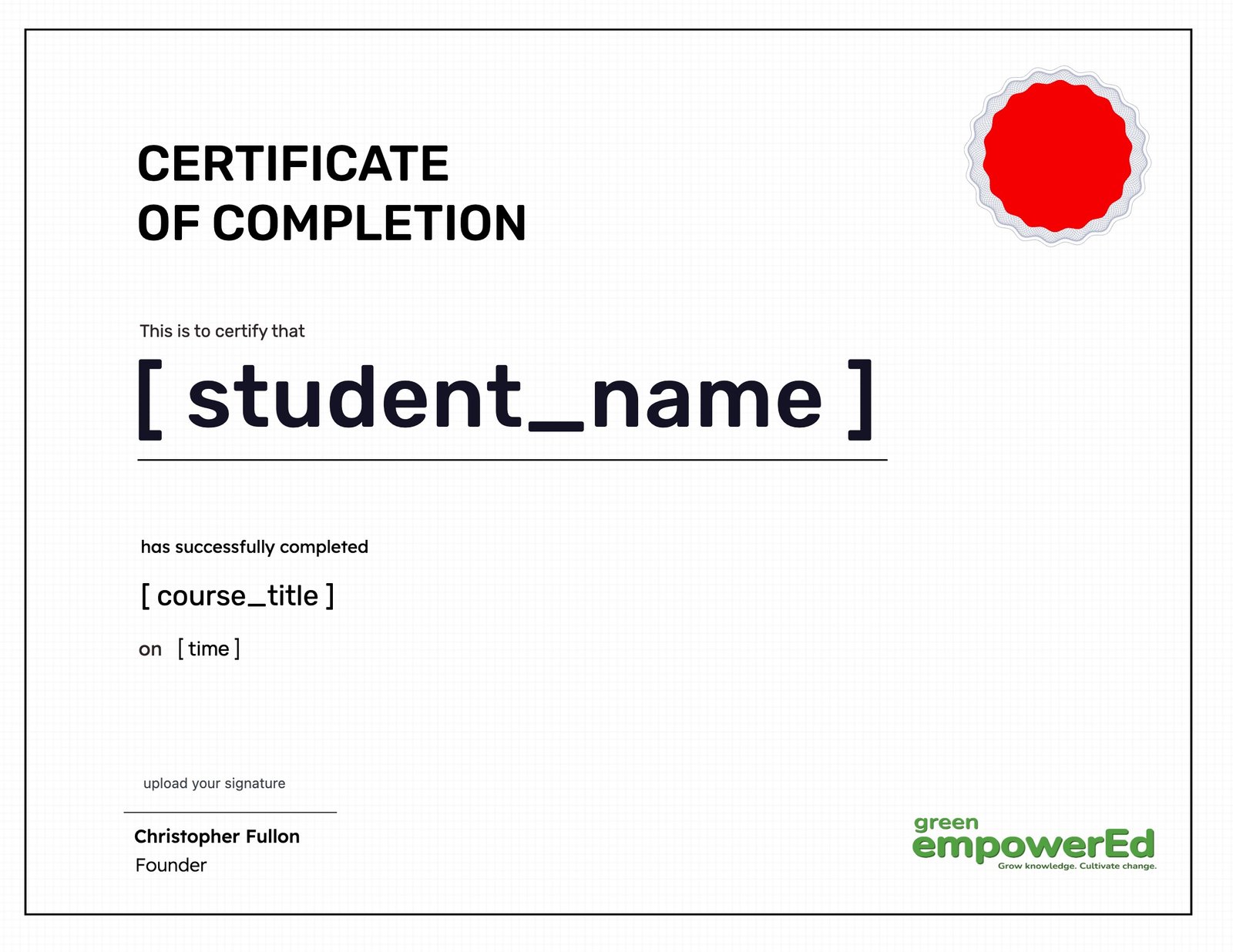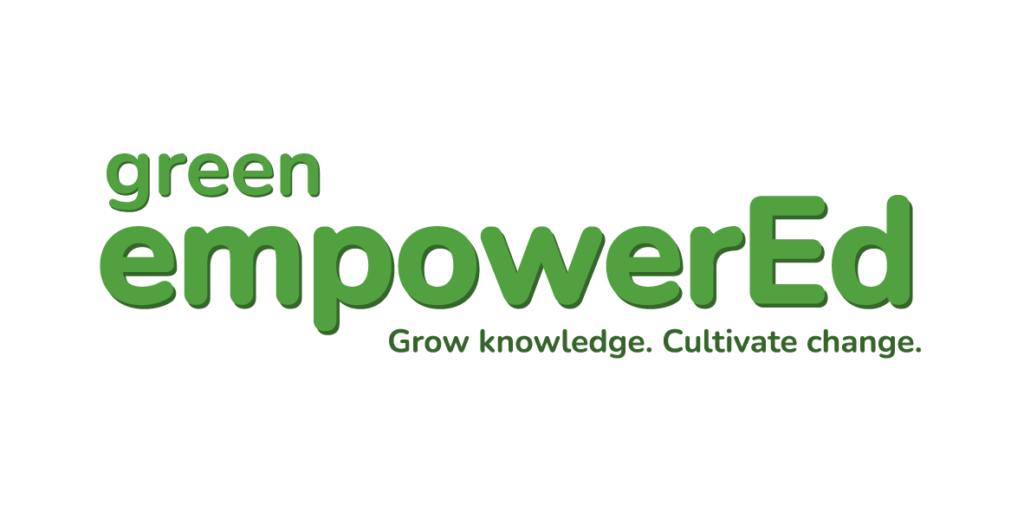
About Course
Unlock Real-World Learning with School Farms
School farms provide an engaging, hands-on environment where students connect theory to practice. Rather than relying solely on textbooks and classroom discussions, students experience learning by planting seeds, monitoring growth, and managing farm systems. These activities build essential skills like observation, critical thinking, and problem-solving.
This experiential approach also supports diverse learning styles. For students who struggle in traditional settings, working with their hands and seeing real-world results can dramatically boost engagement and knowledge retention.
Beyond academic achievement, school farms expose students to urgent global themes—sustainability, food security, and resource management—preparing them for a changing world.
Professional Development for Educators
This PD program equips educators with the skills and confidence to integrate food systems education into their curriculum. Learn how to leverage your school’s farm as a dynamic teaching tool that bridges STEM, Humanities, and cross-disciplinary learning.
Gain insights into how food systems link with sustainability, industry, and global competencies, and bring meaningful, real-world learning into your classroom.
Ideal For: High school teachers and community educators across STEM, Humanities, and integrated subjects.
Empower your students through education that grows from the ground up.
Course Content
What Is a School-Based Farm?
-
Video Lesson
06:18
Understanding Agricultural Food Systems as a Learning Lens
Why Food and Farming Literacy Matters Now
Debunking Myths About School Farms
Why School-Based Farms Matter for Teaching and Learning
Using Your School Based Farm as a Learning Tool
Health and Safety in Farm-Based Learning
Food Safety and Diverse Skillsets
Fostering Strong Industry Partnerships
Agriculture and Food System Jobs of the Future
Embedding Farms in Schools as a National Priority
Conclusion and Next Steps
Earn a certificate
Add this certificate to your resume to demonstrate your skills & increase your chances of getting noticed.

Student Ratings & Reviews


